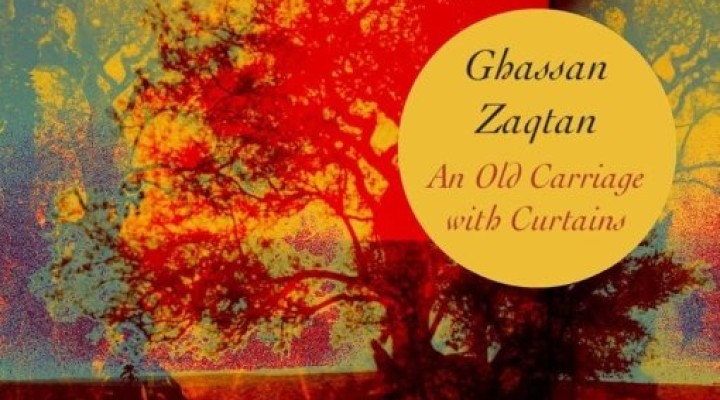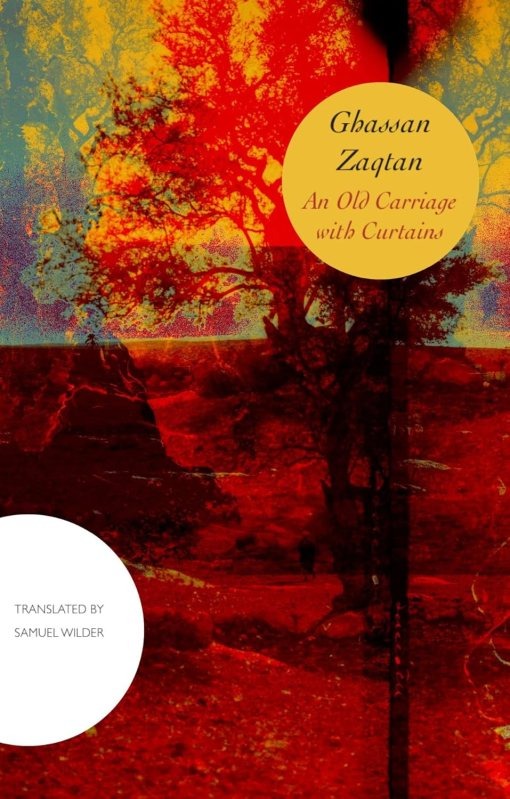
- Book Author(s):Ghassan Zaqtan
- Published Date:November 2023
- Publisher:Seagull Books
- Hardback:144 pages
- ISBN-13:9781803092348
Ghassan Zaqtan’s impeccable weaving of Palestinian memory serves as a reminder of how far such memory can extend in a confined, ever-shrinking geopolitical space constantly eroded by Israeli colonialism and the ensuing military Occupation. The last book in a trilogy, An Old Carriage with Curtains (Seagull Books, 2023) does not pick up from Where the Bird Disappeared (2018), although the themes explored in the books carry similar strands and one is still reminded of the previous.

Interspersed with earlier history which centres Palestine’s significance, the book is rooted in the present navigations of the narrator attempting to secure a visitation permit for his mother to visit the village of Zakariyya. The narrator’s solitary musings, based upon incessant observation, illustrate scenes for the reader, which sometimes merge into brief interactions that either border on the almost absurd, evoke contradictions, intense emotions and divergences in recollections.
The village of Zakariyya is central to the novel. The narrator’s father and uncle are both dead, which spells an abrupt ending to a trail of memories that are now inaccessible. His mother’s narrations contain two main strands that are connected to each other – a railway station that was visible from Zakariyya and which is now destroyed, and her friendship with a Jewish-Palestinian woman named Rikva which was truncated by the 1948 Nakba. The narrator muses about this friendship in terms of oral history, as it is his mother’s first time mentioning a Jewish person that is not part of the Jewish paramilitaries that laid the foundations of the Zionist state through ethnic cleansing.
Two particular interactions occur throughout the novel which elicit different responses from the narrator. One is with an old Jewish man who he asks about the Salihi Tomb and which evokes the dissonance between memory and oblivion in terms of the 1948 Nakba and its aftermath. The other concerns a female soldier, who is frequently posted at the Allenby Bridge border crossing, and who becomes familiar to the narrator due to his own travels, until she asks him if he likes to travel – a question which the narrator sees as an intrusion.
Travel indicates return. So does displacement and the tenacity of the Palestinian refugees. Throughout the novel, the Palestinian concept of return remains at the helm. There is no other way, since it runs parallel to the forced displacement and the longing for land. The return, however, is also explored in terms of memory with regard to places and people which, at times, intertwine, as is seen in the beginning of the novel when the narrator recalls earlier memories of a monastery and the remembrance of the group of friends who travelled to visit it, coupled with the realisation that he might be the only one left.
Return, for the narrator’s mother, presents another obstacle – a permit that might not allow her to enter the village of Zakariyya. Here Zaqtan creates two dimensions – the simplicity of an older woman for whom returning, although briefly and at a very late stage in her life, is strictly related to travelling. For the narrator, however, a frequent traveller, return is fraught with Israeli colonialism, violence and bureaucracy. The checkpoints he has to navigate, and where he spends time observing people which, at times, remind him of other people in his past, are realities that either prolong or impede the temporary returns to colonised Palestine.
Another strand of return concerns the narrator’s relationship with Hind, an actress with whom he had established a relationship but failed to understand her need for him. Language and dialects were two other components that became part of the narrator’s consciousness as refugees contributed to the differences in language. “What struck him first in his return were the dialects and the roads. It mystified him that he belonged to none of these.”
As the narrator’s observations deepened, dialects also became intertwined in return, and return itself manifested itself in a tangible space, perhaps also momentarily, as Zaqtan writes, “His return became a space that could add to all the others.”
The railway station also ties into the metaphor of return. Besides the narrator’s mother’s insistence about the railway and, in turn, the railway becoming part of the narrator’s memory through oral history, the railway station weaves its way to the narrator’s consciousness in the book’s conclusion. “He walked on the rusted tracks, as if stumbling against the catastrophe and his mother’s death on the east of the river.”
Perhaps, for the Palestinians and because of interminable exile, return is also mostly about memory. Zaqtan brings the novel to a conclusion that is almost like an invitation to understand the beginning.
https://www.middleeastmonitor.com/20241203-an-old-carriage-with-curtains/

Ramona Wadi
Ramona Wadi is an independent researcher, freelance journalist, book reviewer and blogger. Her writing covers a range of themes in relation to Palestine, Chile and Latin America.
 TheAltWorld
TheAltWorld
0 thoughts on “An Old Carriage with Curtains”